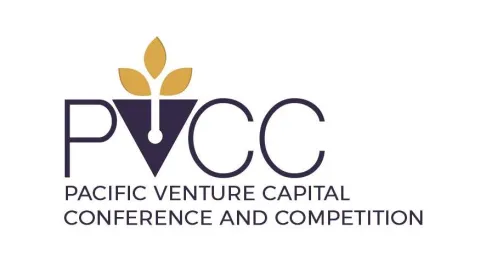UBC students win entrepreneurship competition with innovative solution for restaurant industry

A team of UBC students was awarded first place in the entrepreneurship category of the competition portion of this year’s Pacific Venture Capital Conference and Competition, the largest student-run event of its kind in North America. The win came with a $5500 cash prize and four thousand dollars’ worth of in-kind legal services from McMillan LLP.
Over four rounds of competition, the UBC team — integrated engineering students Jake Elward, Pooya Daravi and Roberto Garelli, and commerce students Candy Liu and Peter Chen — developed and presented its business plan for an automated cutlery polisher and sorter. Targeted at the food service industry, the technology has already generated interest from the Earls restaurant chain, which intends to rent a food-safe, proof-of-concept version of the device after it is completed this summer.
“It was a really unique and rewarding experience,” says Elward. “Meeting students from other universities, receiving mentorship from industry professionals, making connections with potential investors — not to mention presenting in front of hundreds of people ... We learned a lot in just a few days, and it was incredibly gratifying to gain recognition for our work at a venue like that.”
This year, the Pacific Venture Capital Conference and Competition was held at the Rosewood Hotel Georgia in downtown Vancouver and was attended by over 600 students and professionals. Featuring talks by industry leaders and workshops on entrepreneurship and venture capital, the annual event — it is now in its seventh year — seeks to give undergraduate and graduate students a one-of-a-kind learning and networking opportunity and to further inspire them to pursue their start-up dreams.
Like many other UBC student innovations, the cutlery machine has its origins in New Venture Design, a popular joint APSC and Sauder course which drives students to develop a viable business plan around products or processes that address prevalent real-world problems. For Elward and his teammates, much of the first four months of the course was spent chatting with restaurants about common issues they were experiencing and potentially workable technological solutions.
“We showed them what our devices would look like using prototype models made out of arts and crafts supplies that cost us pretty much nothing,” says Elward. “We kept pivoting and changing between different ideas before arriving at what we have today, which created a lot of excitement at the restaurants. Then we spent the next few months designing and building a device that could deliver the proper functionality.”
At full-service restaurants, servers devote an average of three to five hours every day to polishing and sorting cutlery by hand. In addition to driving up labor costs, this results in inconsistently polished cutlery and the frequent need, particularly during busy periods, to pull servers off the floor to polish more cutlery when the supply runs out — negatively impacting customer service, customer turn-over and, ultimately, customer satisfaction.
So the UBC team created a device that may eliminate the problem entirely: a quiet, highly compact machine that could not only enable restaurants to polish and sort their cutlery using almost no manual labor, but also be smoothly integrated into restaurants’ existing operations. With the proof-of-concept prototype almost ready and a number of successful test runs under their belt, the next step is to prepare the food-safe upgrade for Earls.
Even before the team pitched their product and business plan at the competition, there were hints of the success to come.
“One of most memorable parts of PVCC was when we were reviewing our slides before the pitch,” recalls Elward. “The manager of the hotel where the event was taking place saw our slides and got really excited about what we’re building. He decided to sit in on our presentation and told us afterward that he wants the device when it’s ready.”
After the competition, the team received more business cards than they could easily keep track of, and a member of judging panel — a partner at a venture capital firm — reached out to set up a meeting. It was another high point in an especially eventful week: just a few days earlier they had won $500 at the UBC RBC Get Seeded event and five thousand dollars’ worth of Amazon web services at Founders Live Vancouver, a pitch competition featuring just five handpicked companies.
The team members are quick to acknowledge the support and guidance they received from their instructors in New Venture Design, which is now open to UBC students from all faculties with a passion for entrepreneurship. Over the coming year, the UBC team will be partnering with entrepreneurship@ubc in hopes of taking their business to the next level, including their first round of venture capital funding.
“Our vision for the company is to solve other problems for restaurants and grow into the broader kitchen automation industry,” says Elward.